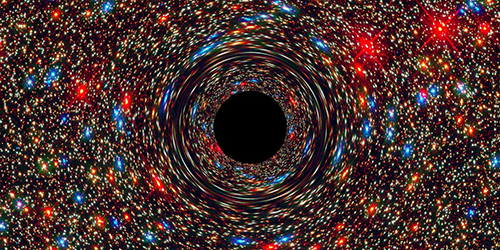Understanding the Limitations of Light in Black Hole Formation

Introduction
The concept of black holes has fascinated scientists and the public alike. Recent research sheds new light on a longstanding question: Can black holes be formed by light alone?
Theoretical Background
General relativity permits the formation of black holes from light, but new findings challenge this view.
Key Findings
- General relativity allows for black hole formation from light.
- Quantum physics intervenes, ruling out this possibility.
- This research affects our understanding of black holes and their formation processes.
Conclusion
This study emphasizes the critical role of quantum physics in the cosmos. As our knowledge of black holes continues to evolve, it’s essential to integrate these findings into our broader understanding of the universe.
This article was prepared using information from open sources in accordance with the principles of Ethical Policy. The editorial team is not responsible for absolute accuracy, as it relies on data from the sources referenced.